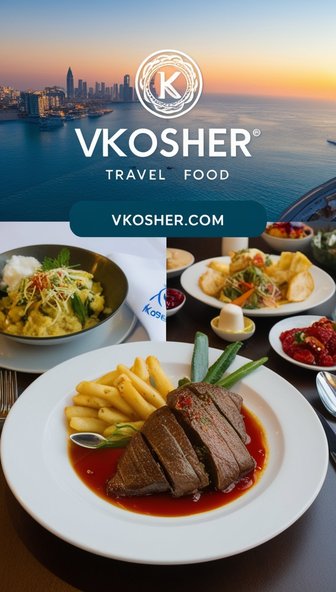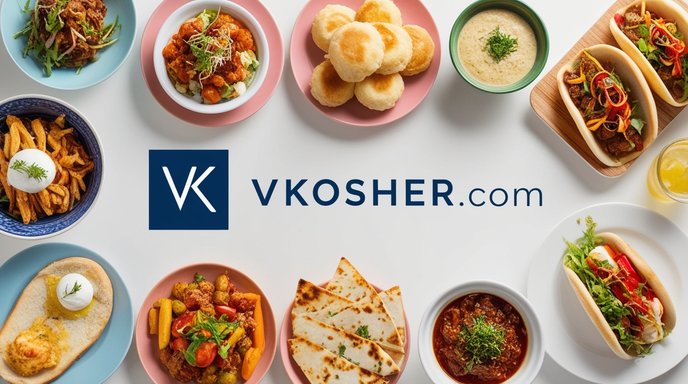Understanding the Kosher Market: A Comprehensive Guide
The kosher market has grown into a significant sector in the global food industry, catering not only to Jewish communities but also to those seeking high-quality, ethically produced foods. This market, rooted in Jewish dietary laws, has seen increasing interest from consumers worldwide, driven by the desire for food products that meet strict standards of cleanliness, quality, and religious observance.
What is Kosher?
Kosher, a term derived from Hebrew, means "fit" or "proper" according to Jewish law. For food to be considered kosher, it must adhere to specific guidelines laid out in the Torah. These laws govern various aspects of food production, including the types of animals that can be consumed, the method of slaughter, the prohibition of mixing meat and dairy, and the supervision of the food preparation process.
The Growth of the Kosher Market
In recent years, the kosher market has expanded beyond its traditional Jewish consumer base. This growth can be attributed to several factors, including the increasing number of people who view kosher products as a symbol of quality and safety. Additionally, those with dietary restrictions, such as lactose intolerance or vegetarianism, often turn to kosher products because of their clear labeling and adherence to strict standards.
The kosher food industry now offers a wide range of products, from meats and dairy to snacks, beverages, and even processed foods. This expansion has been facilitated by advancements in food technology, allowing for the development of kosher-certified versions of nearly any type of food.
Certification and Supervision
Kosher certification is a critical component of the kosher market. For a product to be deemed kosher, it must be certified by a reliable authority, such as a rabbi or a kosher certification agency. These certifying bodies inspect the food production process, ensuring that all ingredients and methods comply with kosher laws.
The certification process is rigorous, involving regular inspections and audits of production facilities. This ensures that the food meets the necessary standards at every stage of production, from sourcing raw materials to packaging the final product. The presence of a kosher symbol, such as the "OU" (Orthodox Union) or "K" (Kosher), on packaging assures consumers that the product has been thoroughly vetted and is suitable for consumption according to Jewish dietary laws.
The Kosher Meat Industry
The kosher meat industry is one of the most well-regulated and scrutinized sectors within the kosher market. Jewish dietary laws outline specific requirements for the types of animals that can be consumed, as well as the method of slaughter, known as shechita. This method is designed to be as humane as possible, with the aim of minimizing the animal's suffering.
Kosher slaughtering is performed by a specially trained individual called a shochet, who must be knowledgeable in both the laws of shechita and the anatomy of animals. The process involves a swift, precise cut to the animal's throat, which severs the major blood vessels and leads to rapid death. After slaughter, the meat is inspected for any signs of disease or imperfection, which would render it non-kosher.
The demand for kosher meat has led to the establishment of specialized kosher slaughterhouses and butcher shops, where consumers can purchase meat with confidence in its adherence to kosher laws. In addition to traditional cuts of meat, kosher delis and markets often offer a variety of prepared meats, such as pastrami, corned beef, and sausages, all produced under strict kosher supervision.
The Role of Kosher Dairy
Dairy products also play a significant role in the kosher market. According to kosher laws, milk and milk products must come from kosher animals, and they cannot be mixed with meat. This separation of meat and dairy extends to the utensils and equipment used in food preparation, necessitating the use of separate sets of dishes, cookware, and even sinks in kosher kitchens.
Kosher dairy products are subject to rigorous inspection to ensure they are free from any non-kosher additives or cross-contamination with meat. This level of supervision provides consumers with the assurance that their dairy products meet the highest standards of kosher certification.
The kosher dairy market includes a wide array of products, from milk, cheese, and butter to yogurt and ice cream. Many kosher-certified dairy products are produced in facilities that exclusively handle kosher dairy, further reducing the risk of contamination and ensuring compliance with kosher laws.
Kosher Processed Foods
The rise of processed foods has not bypassed the kosher market. Today, kosher consumers can find a vast selection of packaged goods that adhere to kosher standards. These include snacks, cereals, canned goods, frozen meals, and more. The kosher certification of processed foods is particularly important because it ensures that all ingredients, including additives and flavorings, are kosher.
The production of kosher processed foods requires careful monitoring of every ingredient used. For example, gelatin, a common additive in many processed foods, must come from a kosher source, such as fish or kosher-slaughtered animals, to be considered kosher. Similarly, enzymes used in cheese production must be derived from kosher animals.
The growth of kosher processed foods has made it easier for kosher consumers to enjoy a wide variety of products without compromising their dietary laws. These products are often available in mainstream supermarkets, making kosher food accessible to a broader audience.
Kosher for Passover
One of the most significant periods for the kosher market is the Jewish holiday of Passover. During Passover, additional dietary restrictions apply, prohibiting the consumption of leavened bread and products made from certain grains. This has led to the creation of a special category of kosher foods, known as "kosher for Passover," which are produced under even stricter guidelines.
Kosher for Passover foods must be free from chametz (leavened products) and kitniyot (legumes, corn, rice, and similar foods, depending on tradition). The production of these foods begins well before Passover, with facilities undergoing a thorough cleaning to remove any traces of chametz. Ingredients are sourced and processed in ways that ensure they do not come into contact with forbidden substances.
During Passover, many kosher markets and grocery stores set up special sections dedicated to kosher for Passover products. These sections feature a wide range of items, from matzah and wine to specially prepared meals and snacks that meet the holiday's dietary requirements.
The Global Reach of Kosher Products
While the kosher market originated in Jewish communities, its appeal has become global. In many countries, kosher products are sought after by consumers of all backgrounds who associate them with high standards of quality, cleanliness, and ethical production. This has led to the expansion of kosher-certified products in international markets, with major food brands seeking kosher certification to tap into this growing demand.
The global reach of kosher products is evident in the variety of kosher foods available in supermarkets around the world. From kosher sushi in Japan to kosher pizza in Italy, these products cater to both Jewish communities and the broader consumer market. The internationalization of kosher food has also led to the establishment of kosher restaurants and catering services in many major cities, further expanding the market's reach.
Challenges Facing the Kosher Market
Despite its growth, the kosher market faces several challenges. One of the primary challenges is maintaining the integrity of kosher certification in a rapidly expanding industry. As the demand for kosher products increases, so does the complexity of ensuring that all certified products meet the necessary standards. This requires constant vigilance and oversight by kosher certification agencies.
Another challenge is the cost associated with producing kosher products. The rigorous standards and supervision required for kosher certification often result in higher production costs, which can be passed on to consumers. This has led to the perception that kosher products are more expensive than their non-kosher counterparts, which can be a barrier for some consumers.
The kosher market also faces competition from other certification programs, such as halal, organic, and non-GMO, which appeal to consumers with similar concerns about food quality and ethics. To stay competitive, the kosher market must continue to emphasize the unique benefits of kosher certification, including its religious significance and its role in ensuring food safety and quality.
The Future of the Kosher Market
The future of the kosher market looks promising, with continued growth expected in both traditional and non-traditional markets. As more consumers seek out foods that meet high standards of quality and ethical production, kosher products are likely to remain in demand.
Technological advancements in food production are also expected to play a role in the future of the kosher market. Innovations in food processing and packaging could make it easier to produce kosher-certified versions of a wider range of products, further expanding the market. Additionally, the growing interest in plant-based and alternative proteins presents an opportunity for the kosher market to cater to consumers who follow both kosher and vegetarian or vegan diets.
In conclusion, the kosher market is a dynamic and evolving sector of the food industry, rooted in tradition but increasingly appealing to a global audience. With its emphasis on quality, cleanliness, and ethical production, the kosher market is well-positioned to continue its growth in the coming years.




